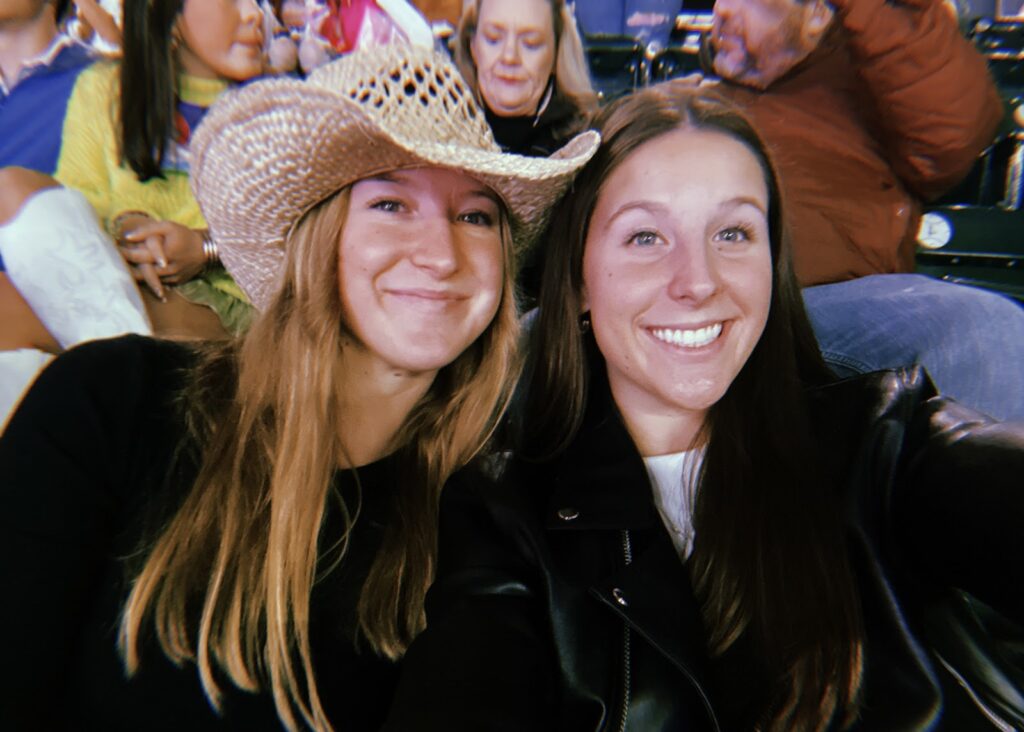June 20, 2024

We’ve been lucky to welcome Gracyn Vesely to our team this summer as an intern. She’s a native of Mount Pleasant, graduate of Wando High School, recipient of the Meeting Street Scholarship and current student at Clemson University studying political science with a minor in nonprofit leadership.
We asked Gracyn to share her thoughts on the Scholarship, her experience in college and her long-term goals.
How did you hear about the Meeting Street Scholarship? I was lucky and my older sister was actually the one who found the scholarship her senior year of high school. She found the Meeting Street Scholarship somewhere online when applying to several different scholarships. The next year, during my senior year, I immediately applied when the scholarship came out.
What has the Meeting Street Scholarship meant to you? It has meant everything to me. It has taken a lot of the financial burden off of college and helped me make a decision about college for reasons besides money.
Also, it has allowed me to really focus on my academics instead of having to stress over the crazy costs of college.
How does college compare with how you thought it would be? Explain. College is both exactly what I thought it would be like and very different. There is naturally a lot more freedom, since most freshmen will not be living at home, but there is also a lot more responsibility since you are away from your parents.
You are the one who is in charge of getting your work done and prioritizing your time in regards to school. Regarding classes I was not prepared for how much certain assignments would be worth, in certain circumstances one essay was worth a fourth of my grade. There was definitely an adjustment there but talking to my professors and fellow students helped a lot.
What advice would you give to high schoolers who don’t know where to go to college? Research is my biggest piece of advice. Learning more about where you are going is a great way to figure out what you are interested in and for comparing different colleges (can even look at the college report).
I also would recommend to anyone who has the ability to visit colleges to try so they can get a feel for the place. However, if this is not feasible, even looking up photos of the campus, dorms, classrooms, and more gives a great feel for the college.
What has helped you be successful in college thus far? Good study habits and time management has been extremely helpful in making sure I stay on track with my work as well as making sure I am being responsible with my time.
Having good friends and roommates has also helped me succeed in college by providing a great network of support. Lastly, going outside of my comfort zone has been really beneficial in finding not only success but also great new opportunities I never would have learned about otherwise.
What do you want to do after college? Ideally, I would like to work with a non-profit organization that deals or works to confront human rights issues internationally. I also would be interested in working at an embassy or in the policy sphere, in the hopes that it would still be dealing with human rights abuses and issues.
What are you hoping to learn during your summer internship? I am hoping to learn more about how non-profit organizations operate in the daily sense but also how they grow and plan for more long-term goals. I am also hoping to learn more technical skills and to become more comfortable in an office environment. I expect to support the full-time staff in whatever capacity is needed, whether that is emailing students, reviewing applications or taking inventory of the supply room.
What’s something we haven’t asked but we should? One piece of advice I have for incoming freshmen is to be email diligent. In other words, be proactive in checking your email daily, there is a lot of important information in your email. It is really easy to miss important information if your email is flooded with a bunch of unnecessary emails.
Additionally, pay attention when your professors go over the syllabus and look there for questions first because typically they are filled with lots of essential information for the semester.